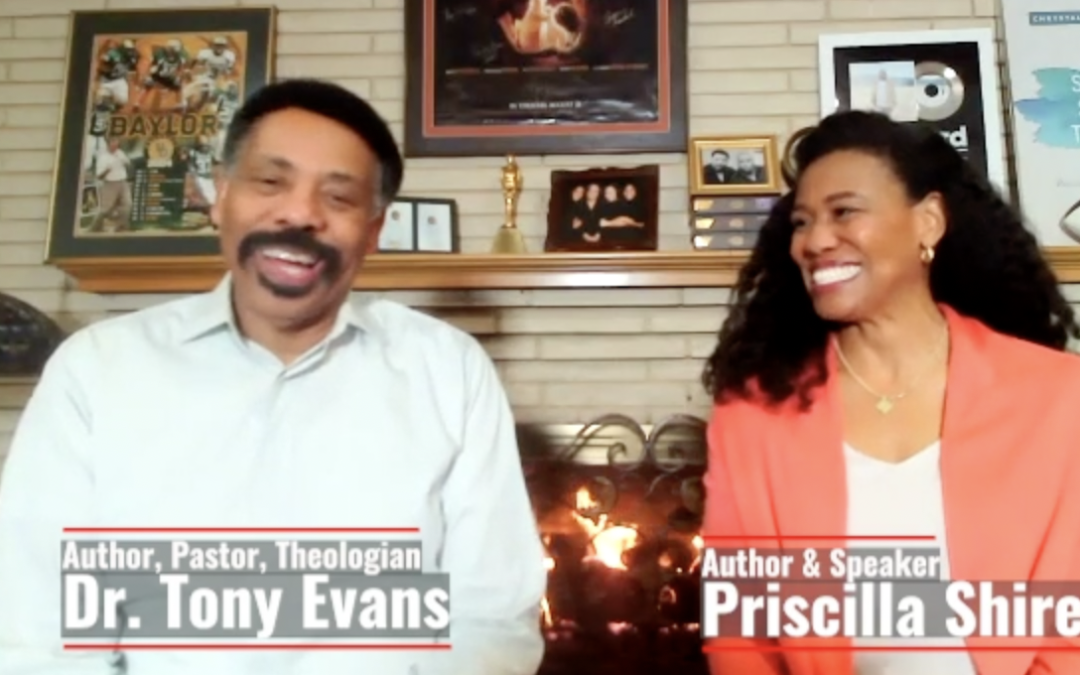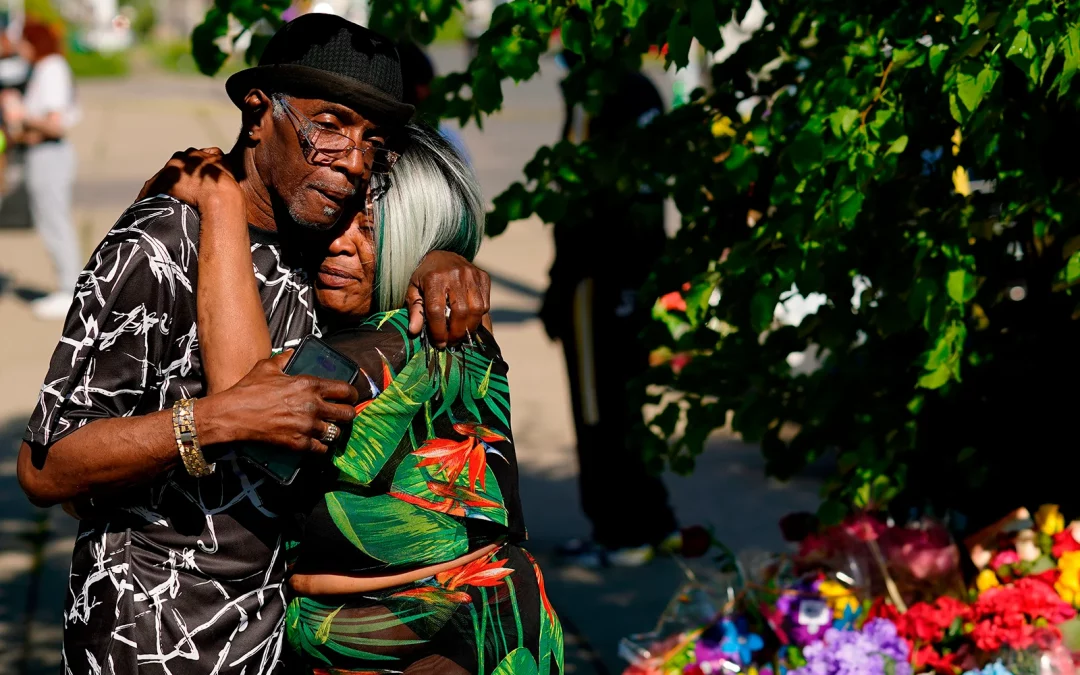
by Adelle M. Banks, RNS | May 18, 2022 | Headline News, Social Justice |
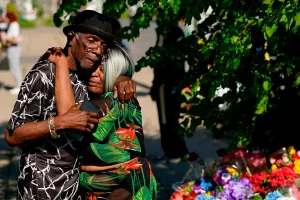
(RNS) — Soon after a white 18-year-old shooter targeted Black customers of a community grocery store in Buffalo, New York, on Saturday (May 14), the Rev. Denise Walden, executive director of Voice Buffalo, a social justice and equity organization, was coordinating clergy to offer grief counseling and help families immediately and, she hopes, for the foreseeable future.
She was also grieving personally: She knows the families of most of the 10 people killed in the massacre.
“This is going to take more than a week, more than a month, more than six months,” said Walden, a member of the clergy team at First Calvary Missionary Baptist Church, a predominantly Black congregation in Buffalo. “We need long-term solutions and support.”
Walden’s 25-year-old organization is a local chapter of Live Free, a Christian organization that has in recent years focused on preventing community violence, which now has new questions to answer, Walden said, about “the hate that caused this person to come into this community and create such a horrible, violent violation to our community.”
She said more resources are needed to counter hate in general and to cope with the reaction from Buffalo’s Black community. “When tragedy strikes and those things are not in place,” Walden said, “we create an environment that can become even more dangerous because people don’t know what to do to process their grief and their trauma.”
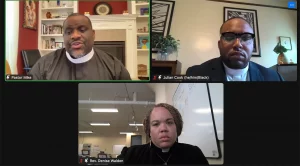
Walden, 42, spoke with Religion News Service about her connections to the people who died on Buffalo’s East Side, who the community has lost and what it needs now.
The interview has been edited for length and clarity.
The massacre on Saturday occurred at a grocery store in your neighborhood. How did you react to the violence that happened there?
I’m a seven-minute walk away from the grocery store. It’s our community store. We’re there regularly. As far as how I reacted, I think I’m still trying to figure that out. For me it was, how do I show up with and in my community, just being a resource and, hopefully, a person to bring some peace and love that are all much needed in this time. And just being as comforting to those who are closest to the pain from this as possible.
You were one of the officiants of a vigil on Sunday outside the Tops grocery store. What words did you find to say?
It was hard. I think we know that there’s a need for comfort. There’s a need for love in our community. And that was the word, reminding people that we are still a strong community; reminding those of us that live here that in spite of this heinous act that we’ve seen, this is still home. This is our home.
You helped notify family members of those who were killed. Was that an unexpected responsibility or have you done that in the past?
That is definitely an unexpected responsibility. I’ve done little bits of it in my clergy capacity. For our organization it’s completely different and completely new. And I’ve never had to show up that way in something so tragic, and also something that is so closely impacting me as well.
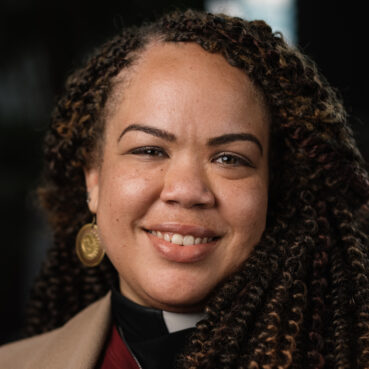
The Rev. Denise Walden. Photo via Voice Buffalo
It must have been very difficult.
Difficult doesn’t even describe it. I don’t think that there are words that can describe what was felt by these families and especially when our community is already in such a deep period of grief just still coming out of the pandemic. And then to now have loved ones ripped away from (them) so violently. That’s very difficult news to deliver to anybody.
Some of those lost have been described as church mothers or community mothers and a deacon — people who may have helped others cope when something like this happens in their community.
They are some of the matriarchs and the pillars of our community. They will be missed in ways that I don’t think I can do justice to describing, but who bring joy to this community. They’re the ones who help stand and hold this community together. Check those of us that need to be checked when we need to be checked. They are such an instrumental part of our community. I know some of them have snatched up my kid, like, “Hey, young man, get it together.” That is a huge loss to our entire community.
How will faith leaders address the mental health needs that there are now?
One of the asks that Voice and our partners have been consistently making is for culturally responsive services — people who understand there is some generational trauma here. People that they can feel a sense of community and trust with. There are very big cultural dynamics at play here. We’re working really hard to coordinate faith effortsalongside mental health providers and we’ve had a call out for faith leaders who are also licensed in providing (such) services.
Is that clergy of color who would understand some of the cultural and long-term dynamics here?
Yes, that can do grief counseling, trauma, counseling, all of those typesof things. But we’ve also put out a call to clergy to just be a presence in this community. Just be a presence of peace, a presence of comfort, a presence of love in this community. Because at the end of the day, that’s what’s going to help us start to process. That’s what’s going to help us start to heal.
Before the shooting, what were you planning to do this week?
I was getting ready to go to my sister’s graduation. She’s graduating with her second master’s degree and with honors. We were planning a great family Saturday to just all be together before I was leaving out of town. (But) I need to be here with my family. That’s my actual family, my husband and my children, but I also need to be here with my family that is my community. And so, for that reason, I won’t be traveling, and I’m grateful because she understands.
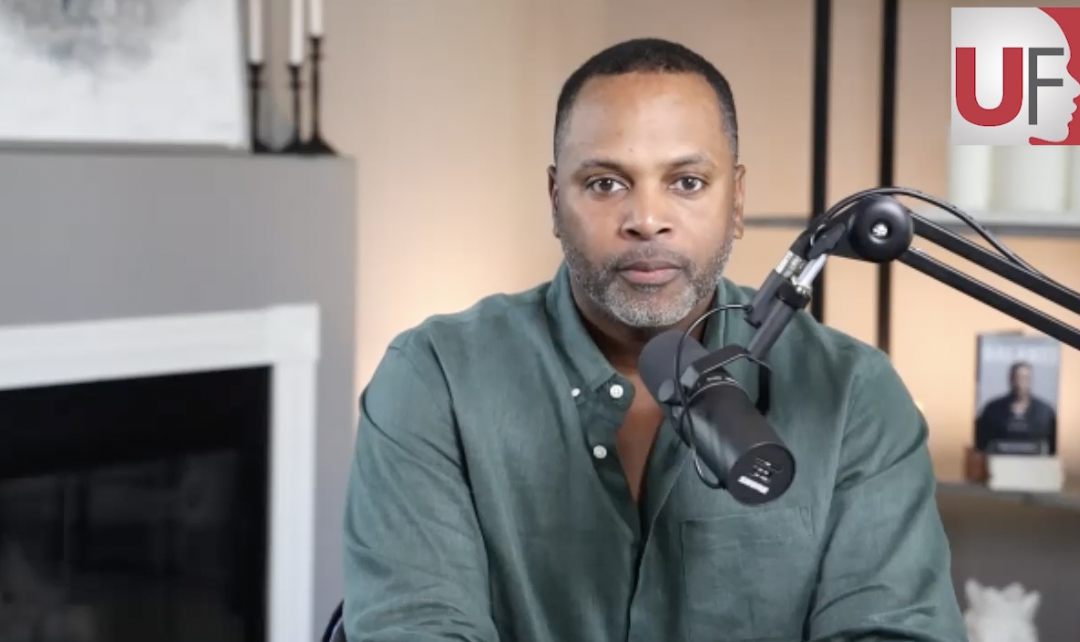
by Allen Reynolds, UrbanFaith Editor | Apr 19, 2022 | Commentary, Faith & Work, Headline News |
UrbanFaith sat down to interview Touré Roberts, the visionary leader and founder of ONE (formerly OneChurch LA) to discuss his new book Balance.
Touré Roberts is a man who wears many hats. He is a husband, father, producer, pastor, author, speaker, and business executive with churches and homes in two cities. His wife Sarah Jakes Roberts who wrote the foreword to his most recent book is one of the most sought after speakers in the country. Saying Roberts needs balance to maintain his success is an understatement. But Touré has uncovered an unconventional approach to balance…as a place to live from. An overview of the book is below.

Imagine learning to tap into the awareness, the sensitivity and highest thought patterns that enable the most successful outcomes in life, love and business. What would your life look like if you were able to break the patterns of inconsistency that keep you from your absolute best? These goals are not only possible—they are what you were made for! In Balance, bestselling author Touré Roberts guides us on the eye-opening journey that unpacks the divine formula that makes this a reality. This illuminating guide brings a unique and eye-opening perspective to the evasive concept of balance.
by Frances Cudjoe Waters | Feb 23, 2012 | Entertainment, Feature, Headline News |

DANGEROUS LOVE: Whitney Houston in 1997 with then-husband Bobby Brown. (Photo: Kathy Hutchins/Newscom)
Over the past week, we have been riveted by the tragedy of Whitney Houston’s untimely death. Accounts of drug use and a fallen icon have flooded the media. Yet, little has been said about how her self-professed faith may have contributed to both her downfall and eventual escape from an unhealthy marriage relationship.
In her last major interview with Oprah Winfrey in 2009, Whitney states that she stayed in the marriage, endured abuse and humiliation, and engaged in self-destructive behaviors in her effort to be a “good” Christian wife. No matter what happened, she felt she had to remain because as she quotes, “What God has brought together, let no man put asunder.”
Yet, Whitney’s statements about letting, indeed inviting, her husband “to take control of her life,” and that a wife must do whatever her husband says is not a new concept. In fact, the concept of women being required, as a matter of faith and faithfulness, “to submit” to their husbands in all things is the pervasive normative gospel preached in churches across racial, denominational, and geographical lines. Ephesians 5:22-24, which outlines a wife’s duty to submit, is often taught without context or nuance. Rarely is the verse above it, which says to “submit to one another,” discussed. Moreover, the last verses of the chapter, which make it clear that a man wouldn’t hate or hurt his own body, do not get much airplay in the church either.
This kind of uncritical, a-contextual acceptance of a half-developed theology leads many women to unconditional obedience to a man regardless of how he treats her, much like Whitney Houston. It rebuffs and chastises women who critically analyze its meaning much like slaves were chastised for questioning the ever popular scripture of slave masters, “slaves obey your masters,” (Col. 3:22). Both the Ephesians 5:22-24 and Colossians 3:22 texts are biblical since they do appear in the Bible. But both have the potential to be misused to oppress and disenfranchise whole groups of people. They’ve also been used to maintain the status quo of unjust power structures in society.
Moreover, in 2011, CBS News reported on a Glamour/Harris poll that found that “30 percent of women who have been in a relationship have been abused. Of that 30 percent, 62 percent were hit, 33 percent were choked or strangled, and 11 percent feared their partner would kill them. Even more shocking, another 30 percent of the women said they had experienced behaviors by their partners that can be categorized as abusive, whether they be emotional or physical.”
With this kind of data, it seems incomprehensible that the church would continue to simply preach the gospel of female submission without critical reflection and further context. It is also sad that we do not give equal attention to stressing that violence has no place in any dating or marital relationship. Finally, since 83 percent of Americans categorize themselves as Christians, according to ABCNEWS/Beliefnet, this is relevant to a huge portion of our population.
Yet, Whitney’s is not just a cautionary tale of how one’s theological premise can lead them to accept abuse, disrespect, humiliation, infidelity, and neglect. In the end, it was her faith that gave her the strength to finally realize that the God she believed in did not want her to continually make herself and her talent small, so that her husband could feel big.

AMAZING GRACE: Houston was baptized in the River Jordan near the Sea of Galilee during a Holy Land pilgrimage in May 2003. (Photo: Ygal Levi/Newscom)
Whitney recounts her mother’s prodding her, telling her that the life she was living with drugs, abuse, and chaos with then-husband Bobby Brown was not God’s best for her. According to Houston, her mother, a strong Christian, reminded her of God’s presence and power to bring her out. Whitney says in the 2009 interview, “I began to pray. I said, ‘God, if you will give me one day of strength, I will leave [this house and marriage].” And one day, she did. Much like Tina Turner left her husband, Ike Turner, with only the clothes on her back, Whitney Houston left her home and husband with only a change of clothing.
The transformative power of her faith can be seen in her public discussions. When asked by Diane Sawyer in 2002 what she was addicted to, Whitney rattled off a number of drugs and added that she was “addicted to making love [to Bobby Brown].” But when Oprah asked Whitney in 2009 who she loved, the singer said, “I love the Lord!” And it was that part of her faith that had her on the way to a professional comeback and personal redemption.
In the end, Whitney Houston did not conquer every challenge that haunted her. And none of this excuses the decisions she ultimately made for her life. She owned that. But to understand her life, it is critical that we analyze the thinking and theology that animated her decision-making and helped lead her to such a tragic place.
In the Christian tradition, good theology illuminates, liberates, and pushes us to be our best selves. Bad theology takes bits and pieces of scripture out of context and threatens any who has the audacity to ask questions or to critically analyze the paradigm put forth by those in power.
Whitney’s story is the story of millions of women. It is a cautionary tale that reiterates the importance of thinking critically even about matters of faith. It also invites remembrance of the core tenant of the faith, “For God so loved the world that he gave his one and only Son, that whoever believes in him shall not perish but have eternal life,” (John 3:16). A God who does not want anyone to perish in the afterlife surely does not condone them perishing at the hands of another in this one.
